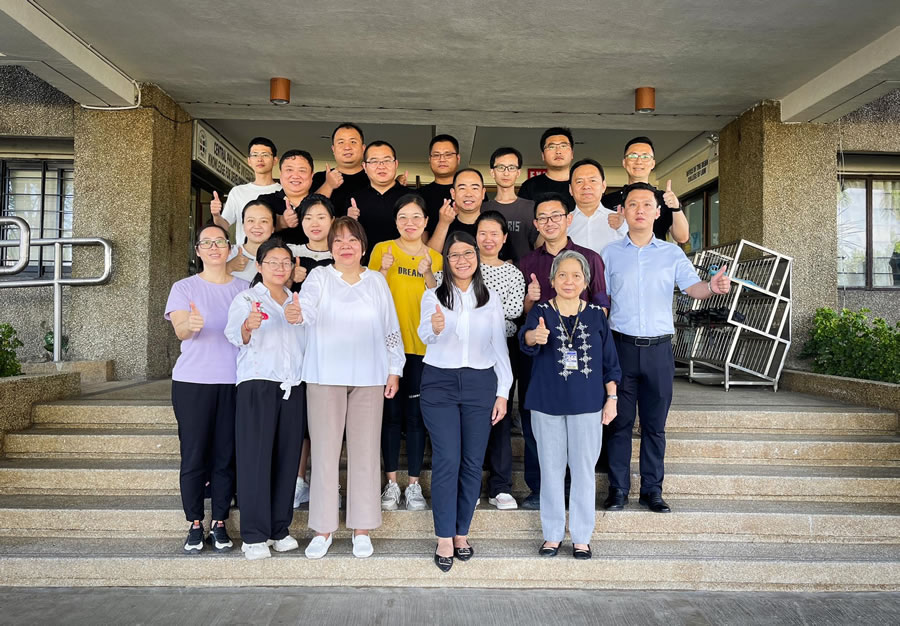by Jessica (Wang Hui), DMBM student

Chinese students with the Dean of the CPU School of Graduate Studies, Dr. Rowena Libo-on and faculty members, Dr. Althea Denuevo and Dr. Amy Castigador.
On February 12, 2024, I embarked on an internship within the Industry Immersion Program and was assigned to the Office of Communications. This marked my initial encounter with the administrative staff of CPU, an occasion that filled me with anticipation. My first encounter was with Francis Neil G. Jalando-on, an exemplary leader whose guidance greatly enriched my internship experience.
As an intern in the Office of Communications, I was tasked with conducting interviews with Chinese students. Through engaging with multiple Chinese students, I gained insights into their perspectives on CPU. Their sentiments can be summarized as follows:
CPU is widely regarded by international students as a vibrant institution that fosters a rich multicultural atmosphere. Within its campus, they engage in meaningful communication and collaborative studies with classmates and faculty members hailing from diverse backgrounds, thus experiencing the dynamic interplay of various cultures. This diverse cultural blend creates an open and inclusive academic setting that facilitates the broadening of their perspectives and enhances their intellectual growth.
Furthermore, the foreign students expressed profound admiration for the academic ambiance prevailing at the Central Philippine University. This institution emphasizes the integration of theoretical knowledge with practical experience, offering a comprehensive array of academic resources and hands-on opportunities. This facilitates the comprehensive mastery of professional competencies among foreign students. Additionally, the university boasts highly qualified and passionate faculty who are committed to fostering the academic progress of international students.
During the interviews, a number of Chinese international students expressed certain aspects of their experience at CPU that they found to be challenging.
Firstly, Language barrier can pose a challenge for certain international students, particularly when engaging in conversation with local students and faculty. The Philippines, where English is the second language, may still present some communication difficulties for international students, particularly during the initial stages of their adaptation.
Secondly, Eating Habits: A Note on Cultural Adaptation for Chinese Students in the Philippines. It is important to acknowledge that the eating habits prevalent in the Philippines may differ significantly from those practiced by some Chinese students. The Filipino food culture, with its strong influence from western cuisine and seafood, may initially present a challenge for those accustomed to a different dietary regime. It is anticipated that Chinese students may require a period of adjustment to familiarize themselves with the local food options.
Thirdly, Cultural disparities exist between the Philippines and China, with varying cultural backgrounds and social customs, potentially leading to discomfort for international students adapting to the local lifestyle and social milieu. Such disparities may manifest in areas such as communication techniques and interpersonal dynamics.
Fourthly, Residence Accommodation and Amenities. While pursuing their academic endeavors at CPU, international students are expected to embrace and adjust to the unique local living conditions and amenities. This necessitates an understanding and accommodation of the local transportation systems, shopping facilities, and healthcare services.
Despite experiencing initial discomforts, Chinese students, with time and gradual adjustment, are ultimately capable of surmounting these challenges and acquiring a gratifying and enriching educational experience at CPU.
